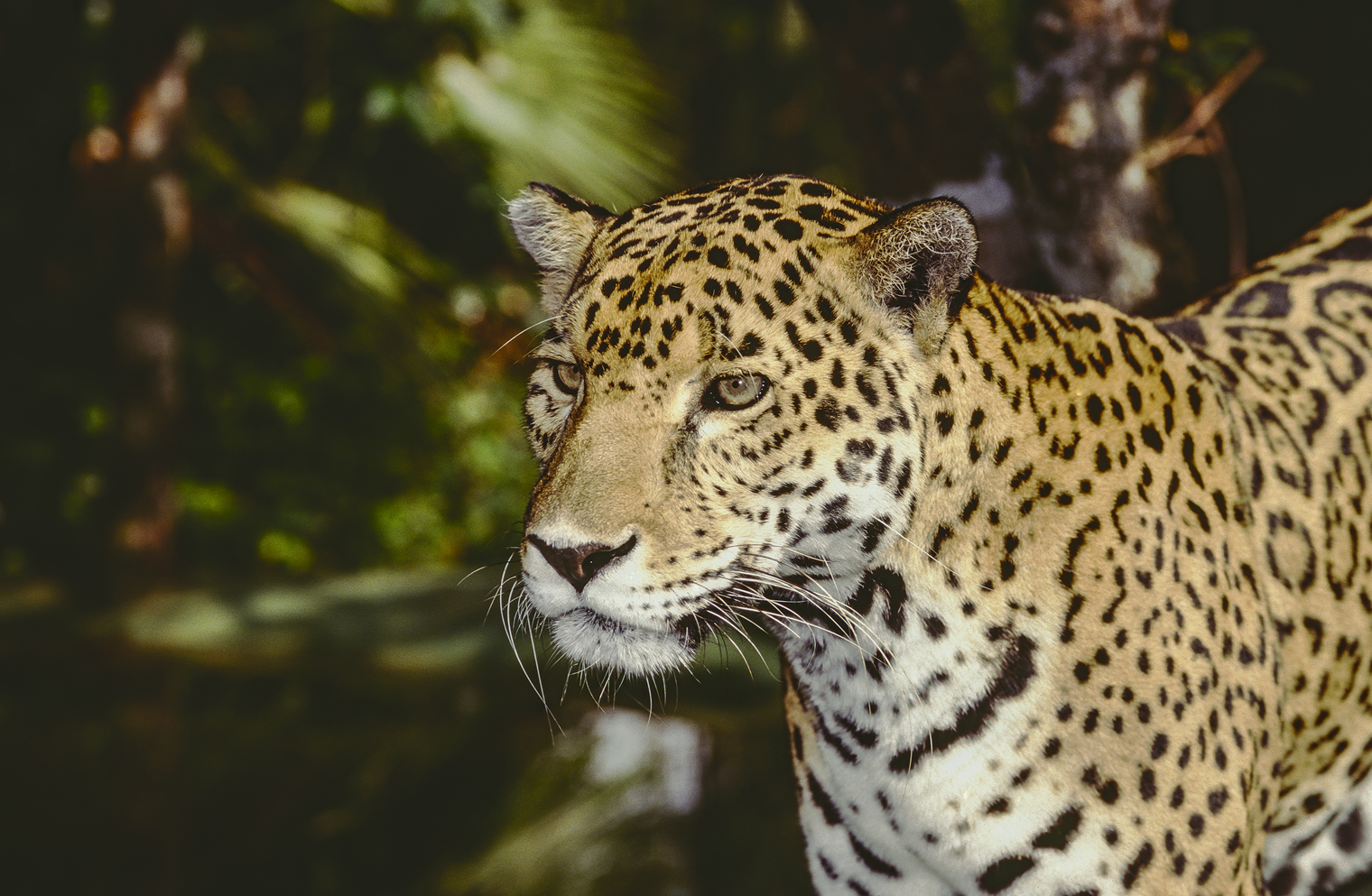Hartley News Online Your alumni and supporter magazine
For the ancient Mayan, Aztec and Andean cultures of Central and South America, the jaguar symbolised strength and power. Although these big cats still roam freely through tropical and sub-tropical forests from southern North America to South America, their continued survival is now threatened by habitat loss and persecution. Research by Dr Patrick Doncaster in the Centre for Biological Sciences and his former Southampton PhD students is helping to protect the jaguars’ habitat in the small Central American country of Belize.
Jaguars need thousands of square kilometres of continuous forest to meet their needs for survival and reproduction. Patrick’s team has worked with the charitable organisation Panthera and the University of Belize to secure Belize’s first wildlife corridor for jaguars and other endangered cats. This forest corridor protects a unique link in the chain of continuous natural habitats within the Mesoamerican corridor stretching between South and North America. The corridor is now the only remaining connection between northerly and southerly forests at this latitude anywhere from the Atlantic to the Pacific.
The work was funded by a Darwin Initiative grant from the UK Government to Patrick at the University of Southampton. The case for the land to be included in Belize’s National Protected Areas Plan was made by his collaborators in the country, Bart Harmsen from the University of Belize and Rebecca Foster from Panthera. Their fieldwork to collect the evidence base led to them establishing the first training framework in field conservation for Belizean students.
“All six species of cat in Central America are endangered by habitat loss,” says Patrick. “Although 60 per cent of land in Belize is still covered by forest, it is partitioned into northern and southern blocks, converging to a 20km strip bisected by the Western Highway, the country’s busiest trunk road.
Without a wildlife corridor to protect this narrow strip from encroaching development, Belize’s southern and northern borders will no longer be linked by continuous forest, and the isolated southern forest will not sustain viable jaguar populations.”
Bart and Rebecca originally began researching large cats in Belize as Patrick’s PhD students, funded by the Natural Environment Research Council (NERC) and the Wildlife Conservation Society. They gathered extensive evidence of the ecology and behaviour of jaguars and pumas from camera traps and faecal remains in a large forest reserve and its surrounding unprotected farmland. These data were used to build computer simulations of their populations, which predicted that the cats were vulnerable to dying out in existing blocks of protected land unless these blocks were joined together by wildlife corridors.
Following the research, Panthera recruited Bart as the Panthera Research Fellow at the University of Belize, and Rebecca as the Director of the Belize Jaguar Program. In April 2011, Belize’s National Protected Areas Secretariat heard the case for the corridor. During the meeting, Rebecca demonstrated the need to link up protected habitats for wildlife populations, based on the project’s monitoring and modelling.
Her arguments persuaded the Secretariat to incorporate the 872km2 corridor into the National Protected Areas System Plan. With the Darwin grant to Patrick, the University became one of the original funders of the Environmental Research Institute in Belize. This institute trained 89 undergraduates in its first three years, many of whom have gone on to work in government departments or to take further degrees.
Patrick has pursued his passion for working with wild mammals throughout his career. His first degree in Environmental Science at the University of East Anglia offered the opportunity to study ecology, a new option in the late 1970s. His PhD at the University of Oxford in the 1980s was one of the first research projects to study the ecology of urban foxes. “By equipping foxes with tracking devices, we discovered that they lived at much higher densities in towns than in the countryside,” he says. “Their social groups were smaller and uniquely dynamic, with territories that continually shifted in response to changing patterns of access in this finely divided landscape.”
Joining the University of Southampton as a lecturer in 1995, Patrick developed new interests in theoretical ecology and evolutionary biology while retaining his involvement with the biology of mammals. Current work on the evolution of cooperation and altruism in animals has led to an exploration of human behaviour in the face of impending climate change. Patrick says:
Tackling global threats such as climate change requires a collective effort, which inevitably calls for some personal sacrifices.
“It remains a major problem to motivate cutting back on emissions of harmful greenhouse gases, at all scales from individuals in communities to governments on the global stage.” Patrick has been tackling this challenge in his undergraduate teaching by having the students play games of collective risk. He adds: “These role plays bring into sharp focus the trade-off between personal gain and public good that so often leads to a tragedy of the commons in which everyone is a loser. In the controlled setting of a game, students can safely explore alternative ways to cooperate with each other.”
To find out more about Patrick’s work in Belize, visit www.southampton.ac.uk/biosci/wildlifecorridor
